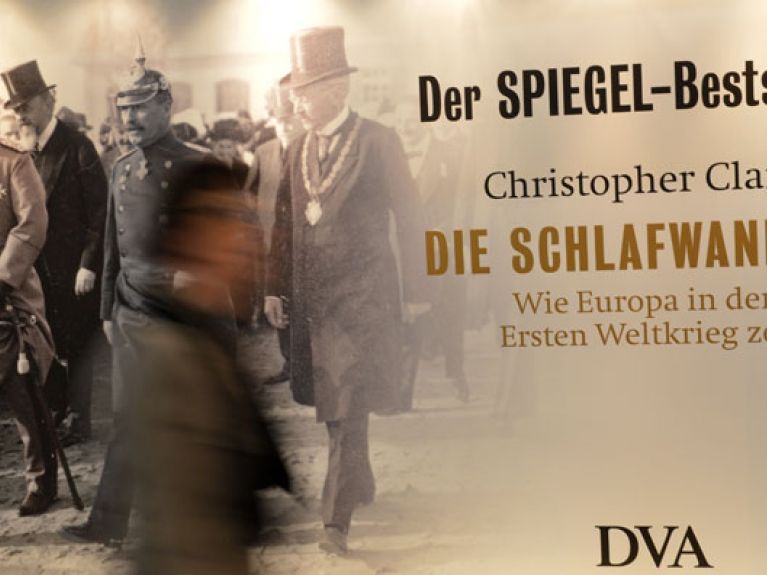The First World War
Europeans are beginning to get to grips with the Great War

A flood of books is the first herald of a special period of commemoration: since the beginning of 2013, more than 110 books dealing with World War One (1914-1918) have been published or announced. Australian historian Christopher Clark’s bestseller “The Sleepwalkers” caused quite a stir and has sparked renewed debate about who was to blame for the First World War. Clark, an academic who teaches in Cambridge in Great Britain, believes that all the countries involved were responsible for the disastrous war. Over the next few years, the European dimension, causes and effects of the Great War will be explored in numerous national and international commemorative events, exhibitions and projects, details of which can be found on the website http://100-jahre-erster-weltkrieg.eu.
Three exhibitions in Germany are already highlighting the impact this collective nightmare had on the lives of artists. Showing at the Bundeskunsthalle in Bonn – the Art and Exhibition Hall of the Federal Republic of Germany – an exhibition entitled “1914. The Avant-Gardes at War” uses around 300 paintings, drawings and sculptures by artists such as Max Beckmann, Otto Dix, Franz Marc, Wassily Kandinsky and Pablo Picasso to present the work done by progressive European thinkers in the years leading up to and during World War One. The second exhibition at the Bundeskunsthalle, entitled “Missing Sons”, forges a link to the 21st century, while the German Literature Archive in Marbach attempts to capture the period of mobilization in August 1914 on the basis of journal records by people like the poet Ernst Stadler and Franz Kafka. The Marbach exhibition is part of a collaborative project with the Bodleian Libraries in Oxford, where Kafka’s diaries are archived, and the Bibliothèque Nationale et Universitaire in Strasbourg, where Ernst Stadler began his war diary.
Two major digital projects are also focusing on the First World War: at the Freie Universität in Berlin, an English-language virtual reference work on the Great War is being compiled. “1914-1918-Online. International Encyclopedia of the First World War”, a joint international project funded by the German Research Foundation (DFG), is to go live on the 100th anniversary of the start of World War One. Meanwhile, the europeana.eu digital archive is inviting people all over Europe to have their letters, photographs and keepsakes from the First World War digitized. The idea is to create a unique online collection of stories and thus establish a link between the “great seminal catastrophe of the twentieth century” and the present day.
http://100-jahre-erster-weltkrieg.eu
© www.deutschland.de
